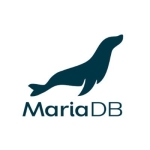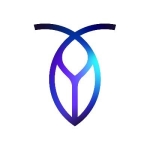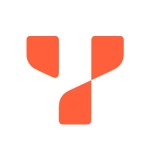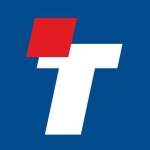What is most valuable?
The most valuable feature is how evolved the solution is right now. It's been around for a while, and I think it's been servicing a lot of different use cases. I think it's really stabilized, evolved, and you can actually put it to use in multiple scenarios. It adapts itself just as well to most business use cases.
I think the best part about Oracle is it keeps evolving. It's not adding any more features to it. There's a big move toward custom cloud services - big databases in the cloud - and obviously there are people with apprehensions in terms of what will happen if that data is shared. They are working towards addressing that issue. They are kind of compartmentalized, and kind of made some of the domains private, to maintain the security for certain critical domains. You still have the power of using the cloud. That's the great thing about it: It keeps evolving. It doesn't stay still. It's very compelling.
It also provides reliability, in terms of handling large volumes of data. I don't believe there's another database server that people would pick. Given a choice, everybody would like to go with Oracle.
I think those are the two big features that really stick out.
How has it helped my organization?
It has definitely improved the way my organization functions. It's our database management tool. We have a lot of sensitive information. Different business verticals have a lot of sensitive information that they want to reliably preserve somewhere, and also be able to call back upon in a very secure manner. Oracle does just that.
At the same time, it has a lot of the algorithms where it tries to optimize itself in terms of how fast you can get the data out, and also how fast you can write to it as well. I think it's definitely improved and provides benefits to the industry; not just for the gaming industry that I'm part of, but generally for all verticals in the business world. As I’ve mentioned, it’s the database of choice for most business verticals.
What needs improvement?
I’d like to see them include a certain amount of intuitiveness in the optimization of the queries, and the algorithms for that could be better. There's still room for improvement in those areas.
One of the things that is also mentioned about Oracle is that with the RAC architecture, the storage is shared, and that sometimes becomes contentional. It's not so much the processing on the nodes; it's the data processing that becomes a point of contention sometimes – if they could do something so we can customize the RAC in some way, and also implement sharing, something along the lines of what Perl OOP has, where the storage is also exclusive to the nodes. I'm sure something like that can be brought in. Having mentioned that, I'm pretty sure they're already researching into it. That's something from my experience that can be improved.
What do I think about the stability of the solution?
I don't think you would pick another database for stability; for financial data, or anything related to money transactions, where you want to reliably store data, and you don't want to lose any data. You don't want to try to save something in the database and then go in the next day and not have it, obviously. Oracle is right up there in terms of stability.
Buyer's Guide
Oracle Database
December 2025
Learn what your peers think about Oracle Database. Get advice and tips from experienced pros sharing their opinions. Updated: December 2025.
879,371 professionals have used our research since 2012.
What do I think about the scalability of the solution?
Obviously, the scalability factor was increased with the Oracle Real Application Clusters (RACs). You have multiple instances of Oracle, with the shared storage, so you can spawn multiple processes to do large volume data lifting. You don't want to rely on one instance alone. You don't want to load that one node alone. It can do everything. You can spread it across nodes. The RAC solution gives you that.
In terms of the data scalability itself, if you don't want a shared storage, you have solutions such as Exadata. It provides very good storage and gives you great performance.
In all respects, Oracle on all fronts is doing great, including scalability. I don't see any issues with it right now. As I’ve mentioned, the great thing about the product is that it keeps evolving and tries to improve.
I think it's great to have those features.
How are customer service and support?
Technical support is a little sketchy. It depends on who you get on any particular day. Oracle is a worldwide organization, so I guess there are certain sections that are not really well covered, in terms of building up a knowledgebase, and trying to go back and see how a problem was solved in the past, which should be an easy thing to do.
I think sometimes it comes down to doing that: going back, looking at the issue you are reporting, determining whether you've faced it before, and what the solution was. If there isn't a solution and if this issue hasn't been reported earlier, then be intuitive about it. That part was missing in the few instances where I've had the opportunity to call support.
As I’ve mentioned, it’s a worldwide organization. They're available around the clock, covering different time zones. All those aspects are covered. I think a little more intuitiveness in the solutioning for the support issues would go a long way in improving the experience.
Which solution did I use previously and why did I switch?
We previously used plenty of solutions. Oracle was an easy choice. If cost is not a constraint, I would recommend Oracle ten times out of ten.
How was the initial setup?
Setup is never straightforward. It's a pretty complex piece. I have actually overseen it, but it's mainly the database administrators, the DBAs, who actually worked on it. They do come back and work closely with us architects and engineers, in terms of how to best configure the infrastructure.
I wouldn't say that it is straightforward, but at the same time, it's been done so many times, there are so many use cases to fall back on. I'm pretty sure that if you get stuck somewhere, you will get the knowledge base, go back and get past that issue that you're facing at that moment.
It's all down to being so evolved. Oracle has been around for a while, so you have those benefits.
Which other solutions did I evaluate?
We moved from another solution, knowing the history of Oracle. We earlier conceptualized to be on Informix. Informix was one of the options we really considered. There wasn't much of innovation happening in Informix. It was more legacy. I think that is a reason why we moved to another database system that is more active with more innovation covering different aspects: scalability, data volume management and those kinds of things. At that point, Informix was definitely the only other option. Subsequently, we looked at other solutions such as MySQL for cost purposes, but having explored each of those, they don't really match up with Oracle for me; the scalability, the data volume management, those features, along with the reliability. There's a lot of hand-holding support that needs to go into those products to be able to match what Oracle offers.
What other advice do I have?
In terms of data security and reliability, if that is of paramount importance, I would definitely suggest Oracle. If cost becomes a factor, in terms of the licensing models I’ve mentioned, then probably I would recommend a cheaper solution - maybe even open source - but that comes with a tradeoff of the data not being reliable.
For financial institutions, financial organizations, you would not want to put your data at risk. I think it's tradeoff with those aspects when making your choice.
The most important criteria when I’m looking at a vendor such as Oracle are the support and licensing. I look at the licensing model, in terms of whether there are certain things that they can do to support a company like ours, who've been engaging with them for so long. We have different business models. If they can offer some licensing options that would be more attractive to meet those business models, maybe offer some innovative solutions, that's something that I would look for.
In terms of the support aspects I’ve already mentioned, there are specific business use cases we're trying to solve, and not just rely on the knowledge base that's already accumulated.
Those are some of the things I look for.
Disclosure: My company does not have a business relationship with this vendor other than being a customer.















I like the post. With lots of great features, there are few chances of data corruption in Oracle database.
We faced the corruption issue in our organisation. Stellar Phoenix Oracle Database Recovery software repaired the corrupt database. Read more about this software from here: www.stellarinfo.com/database-recovery/oracle-recovery.php